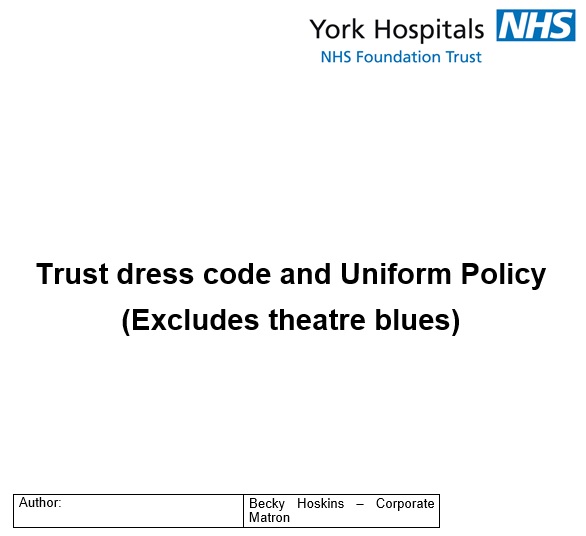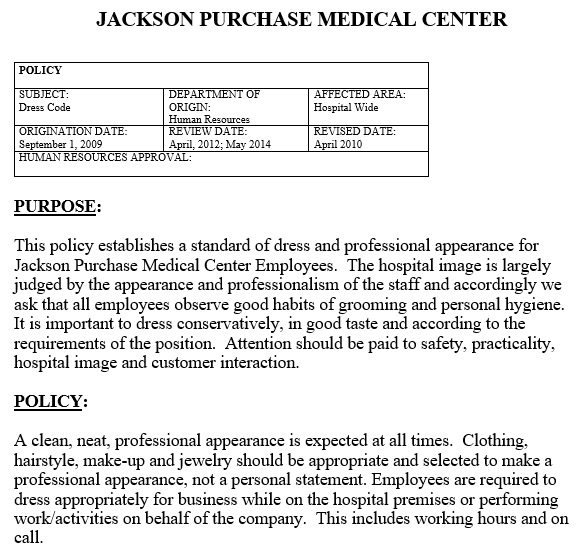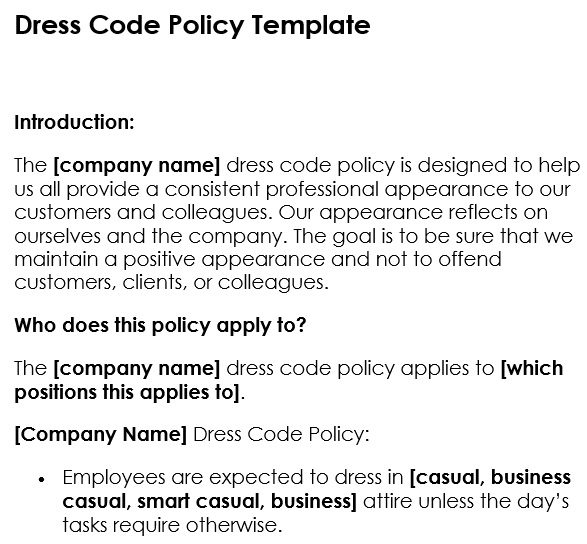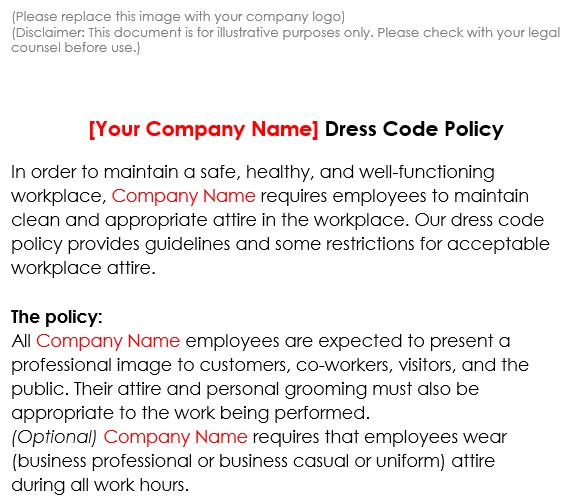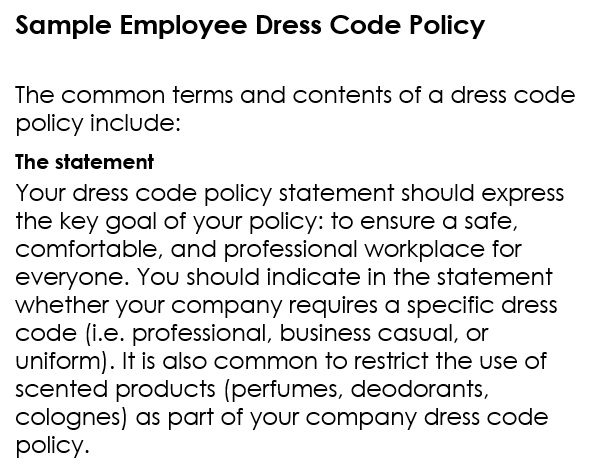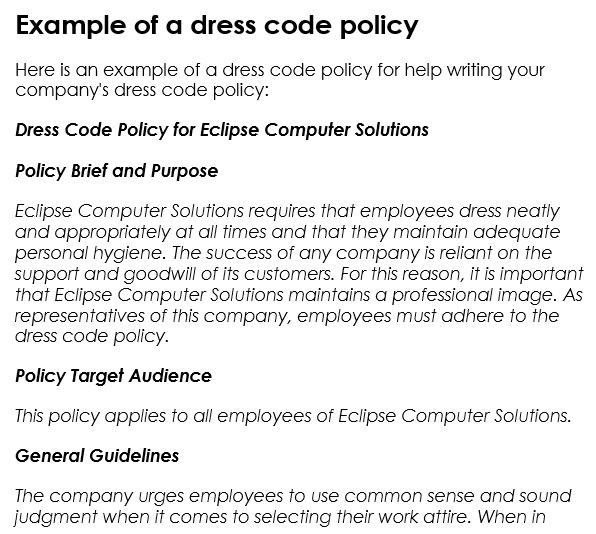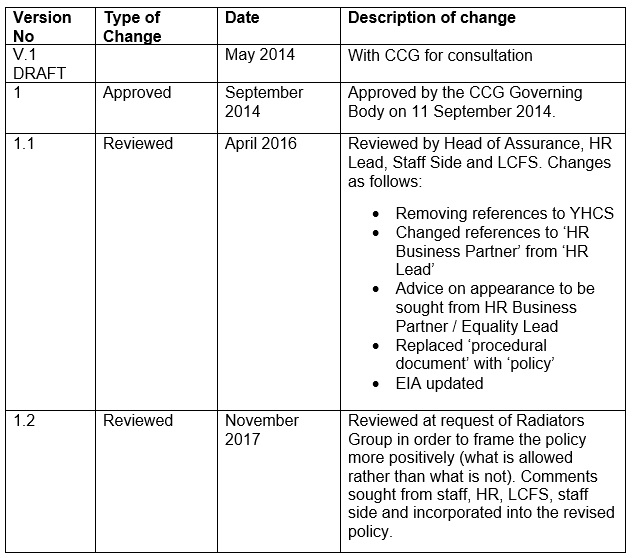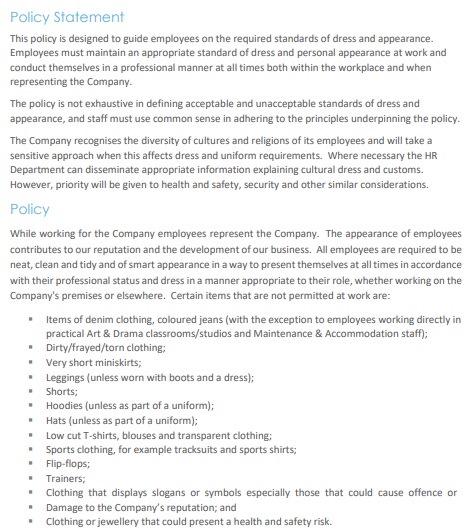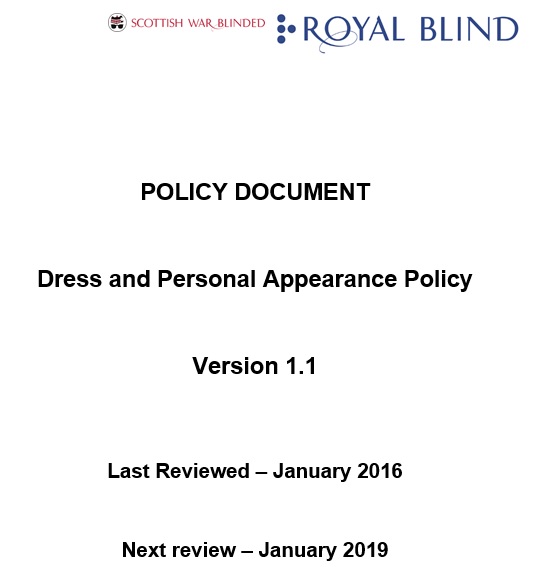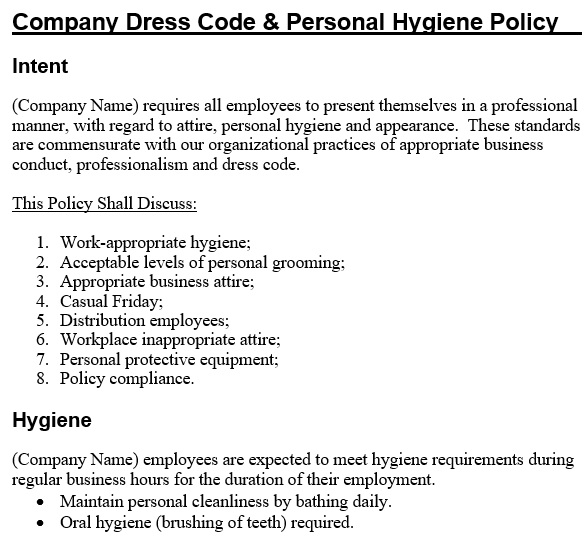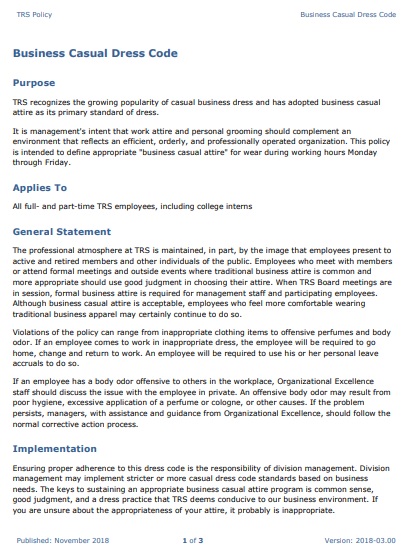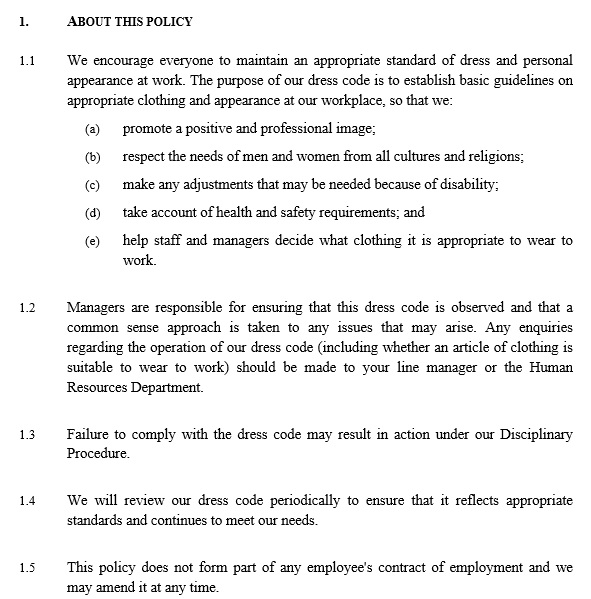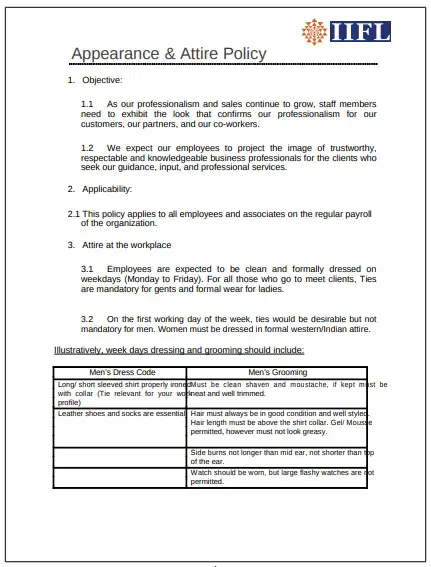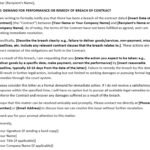A dress code policy template is a document that contains an appropriate dress code of a specific company. It informs the employees what attire the company finds acceptable. A dress code policy assists the employer company in setting standards on the impression the company wants to make.
Table of Contents
The purpose of a dress code policy:
For the success of an organization, the impressions that employees make are essential. The main objective of dress code policy is to display a certain image of a company. Companies also set these policies for safety and comfort purposes.
How to create a dress code policy?
Here are the elements that you should include in your dress code policy;
The introduction:
In the introduction, explain how the company expects employees to present themselves and why this is essential. However, the objective of dress code policies varies. Some companies set dress code policies for safety and some for image purposes.
Who the dress code policy applies to:
Next, here you have to mention specifically who the dress code policy applies to. For example, is a restaurant, the waiters and waitresses wear uniforms while managers generally wear suits. So, to avoid confusion, clearly state that wearing a uniform is for the waiters and waitresses.
Guidelines:
It is important to provide guidelines to your staff on hygiene, jewellery, acceptable clothing, and other things such as having tattoos. Since the company presents a particular image, you could specify that it is essential to cover tattoos.
The company dress code:
You have to state that what the company dress code is. It is essential to explain in detail on what you expect your employees to wear to work. This removes any possibilities of future misunderstandings. The employee dress code is generally business casual. Furthermore, sales and marketing personnel who have regular contact with the company’s customers, for customer interactions and meetings, should follow the business professional dress code. The staff involved in hardware repairs and upgrades have to wear more casual clothing like shorts and can also use the company’s overalls.
Accommodation:
Accommodation is the next element and you have to be democratic. To address any issues regarding the dress code, ask the employees to feel free contact to you or to human resources.
Violation of the policy:
Most importantly, you have to state that violating the dress code policy has different outcomes. When the dress code is breached, managers or administrators may warn their staff.
Trust Dress Code and Uniform Policy Template
Professional Dress Code Policy Template
Free Dress Code Policy Template
Printable Dress Code Policy Template Word
Sample Employee Dress Code Policy
Example of a Dress Code Policy
Dress Code and Appearance Policy Template
Dress Code and Appearance Policy
Dress and Personal Appearance Policy Template
Company Dress Code and Personal Hygiene Policy Template
Business Casual Dress Code Policy Template
Associates Dress Code Policy Template
Appearance and Attire Policy Template
Different types of dress code:
Let us discuss below some different types of dress code;
Business formal
Employers use the business formal dress code to present a business. In this case, casual clothing and shoes are not allowed.
Business professional
Business professional and formal business attires are identical. But, for business professional wear, you do not have to wear your best shoes and suits.
Business casual
If your company’s dress code is casual then you don’t need to wear a suit. It doesn’t allow casual clothes like jeans and t-shirts. With dress pants and dress shoes or boots, women usually wear a shirt with a collar or sweater.
Casual
The term casual means relaxed so it means you can wear practical and comfortable clothes. In corporate environments, informal dress codes are on the rise.
Summer casual
On hot and sunny days, companies provide summertime policies and programs in order to keep workers active and comfortable. This dress code is only for staff that has no interactions with customers.
Casual Fridays
Friday is known as casual dress code day in most companies. The employees are allowed to wear informal clothes away from the usual day-to-day business attire.
Grooming and hygiene
This indicates cleanliness. In the dress code policies, wearing clean and plainclothes are also requirements.
Conclusion:
In conclusion, a dress code policy template is a tool used by the companies to set a specific dress code policy for the employees. Using a respectful tone in the policy is highly recommended.

